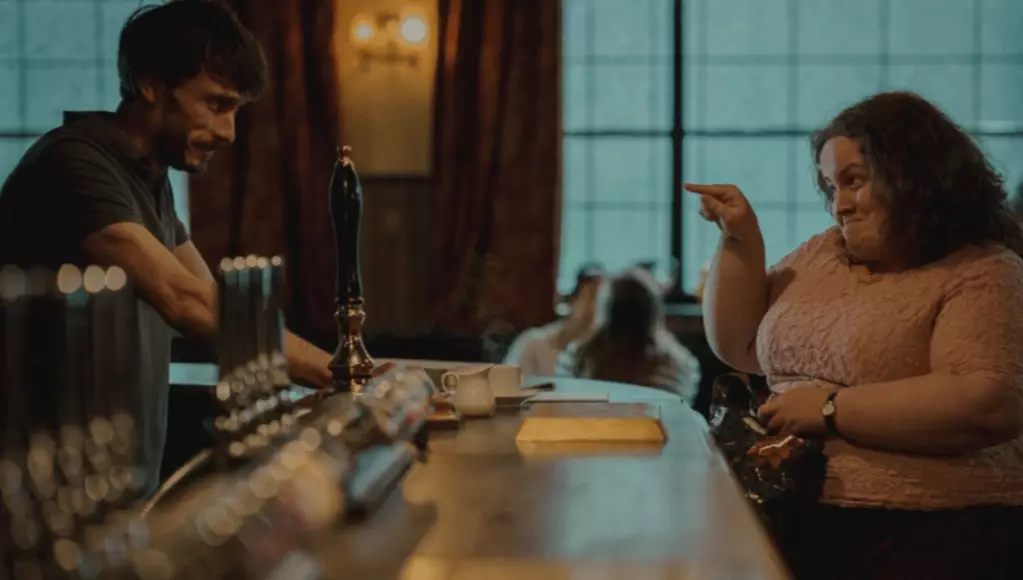In the sphere of entertainment, the boundaries between fiction and reality often blur, leading to profound and sometimes painful consequences for those involved. Recently, Richard Gadd, the creator of Netflix’s “Baby Reindeer,” celebrated a triumphant night at the Emmy Awards. He secured wins in acting, writing, and producing, a remarkable achievement that underscores his talent and the show’s popularity. However, this success is overshadowed by the serious allegations from Fiona Harvey, the woman who claims Gadd has defamed her through his portrayal in the series. The complex intersection of recognition and personal impact reveals not only the darker sides of storytelling but also raises critical questions about accountability in the creative process.
Fiona Harvey’s experiences highlight the psychological toll that a public portrayal can take on individuals involved in the creative narrative. After being identified as the inspiration for Martha—Gadd’s character who embodies obsessive behavior—a cascade of emotional distress enveloped Harvey. In her statement to the *Daily Mail*, she articulated sobering realities including panic attacks, anxiety, and an overwhelming fear of leaving her home. These vivid accounts are a poignant reminder that storytelling, particularly when it treads on the lives of real individuals, can have severe repercussions far beyond entertainment.
Moreover, her claims challenge the ethical obligations creators hold towards their subjects. When Gadd framed Harvey through a fictional lens, he not only reshaped her narrative but also escalated her distress in the process. The narrative arc of Martha, who is portrayed as a convicted stalker, starkly contrasts with Harvey’s real-life situation, wherein she holds no convictions. This disparity raises critical ethical concerns and questions about the responsibility that comes with leveraging real-life experiences for creative endeavors.
The media’s role in amplifying this conflict cannot be understated. Reports have sensationalized Harvey’s suffering and Gadd’s artistry, yet this dual narrative paints a complicated picture. While Gadd basks in the accolades awarded for his work, Harvey navigates a substantial emotional fallout. Her legal team filed a staggering $170 million lawsuit against Netflix, not merely as a financial claim but as a cry for justice against what she sees as extreme defamation and emotional distress.
In her legal battle, she seeks not only reparation but recognition that Gadd’s portrayal of “true stories” is fraught with the potential to harm. Harvey’s lawyer, Richard Roth, articulated the stark contrast between their worlds: while Gadd climbs the entertainment ladder, she grapples with anxiety and insomnia. The legal discourse that has emerged from this situation explores the balance between artistic freedom and the right to dignity for individuals represented in media.
In the wake of the controversy, Netflix’s CEO Ted Sarandos has expressed unwavering support for Gadd, asserting that the show is a legitimate representation of his story, albeit fictionalized. He stressed that the “true story” label attached to the show was not intended to mislead but merely to capture the essence of Gadd’s personal experiences. This staunch defense illustrates a common dilemma within the industry: the tension between commercial viability and ethical storytelling.
Sarandos’s dismissal of the lawsuit invites scrutiny over whether the entertainment industry should take greater responsibility for the narratives it constructs and the real lives they inevitably affect. The term “based on a true story” has become a convenient narrative device, yet it can mislead audiences and obscure the painful realities that subjects may endure as a consequence.
As the dust settles from this contention, it reveals a sector at a crossroads, contemplating the implications of creativity interwoven with real-life complexities. Gadd’s accolades are deserved; however, the narrative he chose to tell comes with a responsibility that cannot be overlooked. Harvey’s experience implores creators to navigate their craft with compassion, recognizing that their portrayals have the power to deeply influence lives beyond the screen.
Ultimately, Gadd’s triumph juxtaposed with Harvey’s struggles serves as a crucial lens through which we examine the narratives we elevate in popular culture. As the lines between inspiration and exploitation become increasingly blurred, it is imperative for artists to forge a path that respects both artistic expression and the lived experiences of individuals behind the story. In this endeavor, a balance must be struck: one that honors the power of storytelling while safeguarding the dignity of real lives intertwined within.

